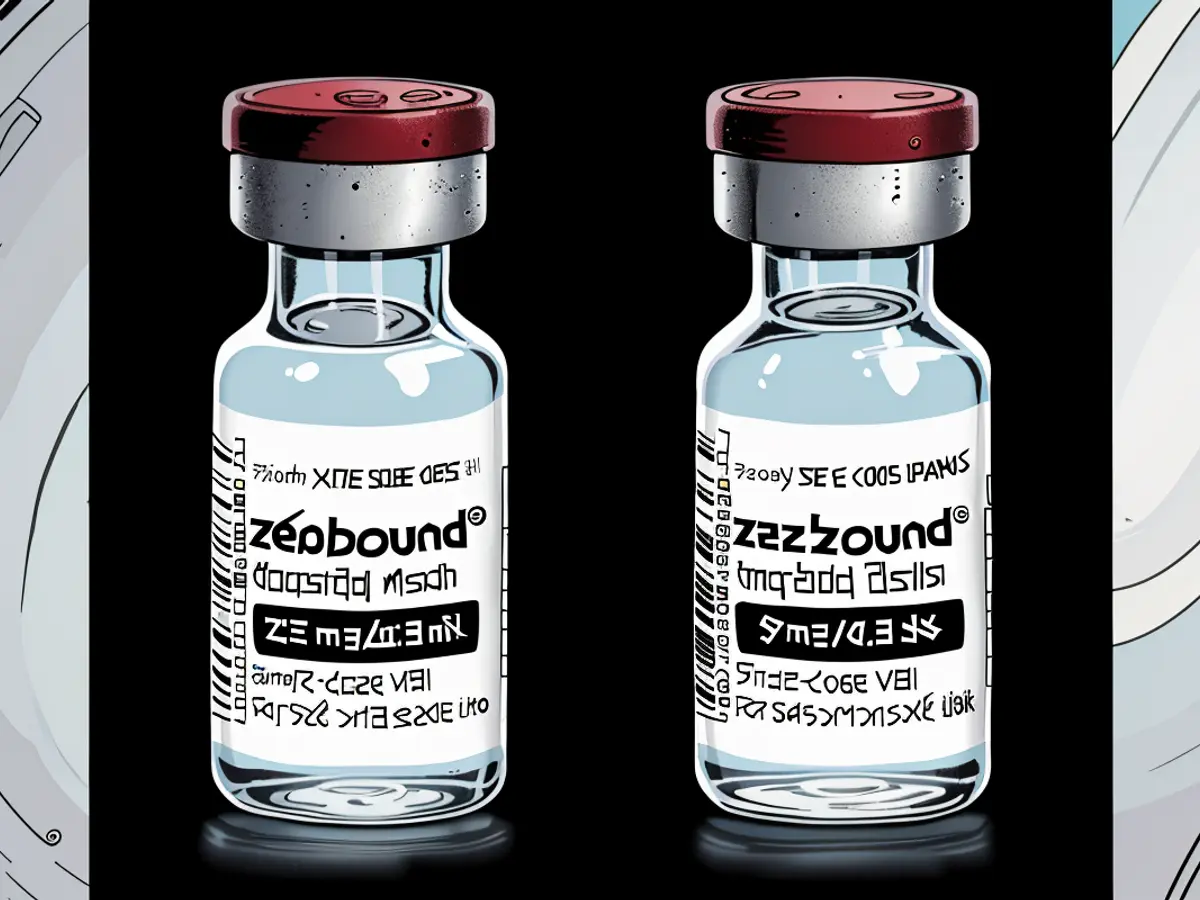Lilly introduces an economically priced weight loss medication devoid of the injector device.
Instead of relying on pre-filled injector pens, patients will opt for syringes to extract the medication.
Tirzepatide, the primary component in Zepbound and Mounjaro, belongs to a newly popular class of medications used in the treatment of obesity and diabetes, leading to scarcities. This has prompted some individuals to procure alternatives from compounding pharmacies.
"These new vials not only assist us in meeting the high demand for our obesity medicine but also cater to a broader patient base seeking a secure and effective treatment option," Patrik Jonsson, president of Lilly Cardiometabolic Health and Lilly USA, stated.
These new vials will be exclusive to individuals who pay out of pocket via LillyDirect, a platform that coordinates telehealth services and prescriptions for patients.
A 4-week supply of the 2.5-milligram (mg) vials costs $399, while the 5-mg vials cost $529 for a 4-week supply. These prices align with those offered through Lilly's savings program for uninsured individuals, the company stated. This out-of-pocket payment option expands availability to patients who do not qualify for the savings program, such as those on Medicare.
"Despite obesity being recognized as a serious chronic illness with long-term consequences, it's often considered a lifestyle choice, resulting in many employers and the federal government excluding medications like Zepbound from insurance coverage," Jonsson mentioned. "Outdated policies and lack of coverage for obesity medications create an urgent need for more innovative solutions. Bringing Zepbound single-dose vials to patients will help more people living with obesity manage this chronic condition. We will also continue to advocate for a system that better aligns with the science."
Tirzepatide functions by replicating hormones that stimulate insulin release, enhance feelings of fullness, and decrease appetite. It targets two hormone receptors, GIP and GLP-1. Semaglutide, known as Ozempic for diabetes and Wegovy for weight loss, is also part of this extensive class of drugs.
The current shortages of tirzepatide and other well-liked weight-loss drugs have given rise to compounded versions of the treatments – with similar or related ingredients – on the market, with reduced oversight and regulation from the US Food and Drug Administration.
The FDA issued a warning last month concerning compounded versions of semaglutide. The agency reported receiving reports of adverse events – some necessitating hospitalization – due to dosing errors associated with units of measurement, varying product concentrations, and the use of multiple-dose vials. Patients are advised not to use a compounded drug if a FDA-approved drug is accessible, according to the agency.
Eli Lilly has expressed concerns about the potential risks that compounded versions of its drugs may pose to patients. In a June open letter, the company emphasized that it is the "sole legitimate supplier of FDA-approved tirzepatide medicines" and that products from other unverified sources may be "fake, counterfeit, or otherwise unsafe products."
"Safety is our top priority, and this is an excellent way for patients to know they're receiving genuine Lilly medicine," said Rhonda Pacheco, group vice president for Lilly US Cardiometabolic Health. Thousands of people utilize LillyDirect each week, she noted.
The experience of self-injecting tirzepatide with a syringe filled from a vial would likely resemble using a preloaded pen – with potential added benefits, Dr. Jody Dushay, an endocrinologist at Beth Israel Deaconess Medical Center and assistant professor of medicine at Harvard Medical School, suggested.
"It's old school, but I have patients with type 1 and 2 diabetes who prefer vial and syringe to pen devices. I don't think it's a much bigger deal to use an insulin syringe versus an auto injector, unless someone has severe needle phobia," she wrote in an email. "It's not that difficult to draw up a syringe, although the elderly, those with limited dexterity, and those with poor vision will be better off with the auto injector."
The syringe and vial might offer some added flexibility in doses, particularly for starting levels, Dushay noted. Patients could draw up less than 2.5 mg if they're experiencing severe side effects or less than 5 mg if they're ready to increase but not quite double the dose.
Additionally, most compounded versions of tirzepatide come in vials, so patients should be particularly cautious about the source of their medication, Dushay pointed out.
Clinical trial data found that individuals using 5-mg injections of tirzepatide lost about 15% of their weight, on average, over more than a year of treatment.
Another recent study found that people using tirzepatide injections lost more weight and were more likely to reach specific weight loss targets than those on semaglutide.
"The scarcities in Tirzepatide have led some individuals to seek alternative treatments, highlighting the importance of secure and effective treatment options for health management."
"Given the popularity of syringes for medication extraction, patients using Tirzepatide with a syringe might find the experience similar to using a pre-filled injector pen, offering potential added benefits."








